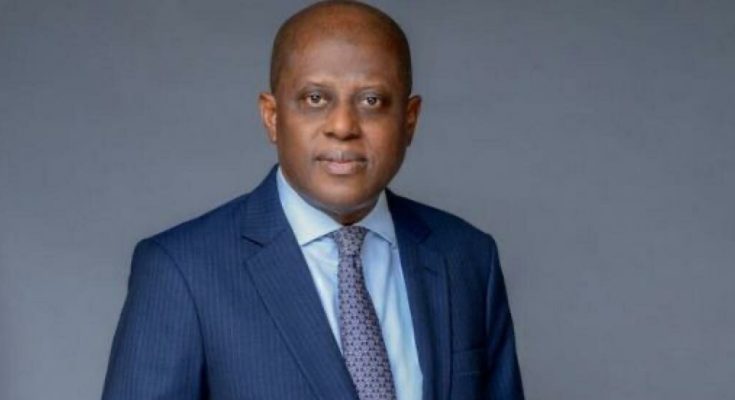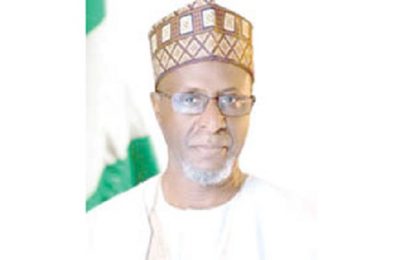THE recent revelation made by the Central Bank of Nigeria (CBN) that the huge sum of $15.55bn was used for debt servicing over the past five years, at a time it has been made public that the President Ahmed Tinubu-led administration has so far borrowed N20.9 trn from bonds within a year, is startling and worrisome. That is more so, as if he is taking a wrong cue from his predecessor, Muhammadu Buhari. Indeed, this calls for an urgent review of the borrowing saga.
Going by another allegation recently made by the current Minister of Women Affairs, Mrs. Uju Kennedy-Ohanenye, while speaking on Arise News, a humongous sum of $100m, as the first tranches of $500m borrowed from the World Bank was misappropriated under the Buhari-led administration. The critical issues of fiscal responsibility, transparency and accountability have, therefore, become compellingly imperative, to stabilize the wobbling economy.
According to her, the fund which is strictly meant for women empowerment tagged “ Nigeria for Women Project” was approved on June 27, 2018. But it was mostly used for advocacy, meetings and consultancy services. Furthermore, it was allegedly “ shared amongst the states” without proper accountability and transparency “. Lack of accountability is, therefore, the crux of the matter. Yet, Nigerians will still have to repay the loans, thereby putting the lives of millions of the citizens deeply down the pit of penury and poverty.

Another source of serious concern is that of the lack of involvement of the people’s views- to know their pressing needs and prioritizing them- when it comes to the disbursement of the huge sums involved. That explains why concerned Nigerians are raising alarm over what they term a misplaced priority, on the part of the President Ahmed Tinubu-led government. These include the construction of the Lagos – Calabar coastal road valued at the mind-boggling sum of N15.356 trillion. So is the proposed purchase of two presidential jets. Both coming up at an economically traumatizing time when youth unemployment, hunger and malnutrition are ravaging the land, speak volumes about our leadership structure.
It would be recalled that in December 2023, the Senate approved the request made by President Tinubu to borrow $7.8 billion and another €100 million as part of what was described as the 2022-2024 Borrowing Plan. Subsequently, in April 2024 this same administration reportedly borrowed over N3.8 trillion from the Central Bank of Nigeria (CBN). It was published in a provisional data in Statistics Bulletin for the Fourth Quarter by the CBN. Such a situation has stirred a wave of concern amongst the enlightened citizenry, who are asking the million naira questions.
For instance, is the government not making adequate income from crude oil sales, the Value Added Tax (VAT), the Customs and the Immigration Services as well as the air and sea ports? Credible answers to these pertinent questions have become important. And that is because the average Nigerian can hardly point to what he is benefitting from the government, as he has to pay all manner of bills- for his children ‘s education, rent, electricity, sanitation and water supply – all in the bid to survive the government -inflicted harsh economic realities on ground.
It is curious too, that successive administrations have kept borrowing to finance the annual budgets, yet leaving Nigerians poorer than they met them. For instance, as at June 2015, the Domestic Debt stood at N8.39 trillion. That was not long after the then President Goodluck Jonathan handed the baton of the presidency to his successor, President Muhammadu Buhari. But some five years later, as at December, 2020 the amount had nearly doubled as it stood at N16.02 trillion. And a year later it had escalated to N19.24 trn.

Yet, as if not disturbed by the scary trend of borrowing Buhari increased the external debt from $ 28.73 bn to $33.62 bn within a year, from December 2020 to December 2021. As a matter of fact, the Domestic Debt ratio grew by 86% over six years, even as the External Debt galloped by 291% over the same period, from 2016 to 2022! Painfully, there are still no empirical evidences on ground in terms of solid infrastructural development, quality education and healthcare delivery to justify the huge sums so borrowed. A disturbing trend, is it not?
Yes, it is, all because the state governors, including the current crop, have towed the same perilous path of profligacy. In fact, the media was awash with the alarm raised by the Debt Management Office ( DMO), that 13 new state governors borrowed a whopping sum of N226.8 bn in their first six months of mounting the pedestal of political power. That huge sum was for both domestic and foreign debts.
Another report claimed that 16 of the new state governors increased their debt profile by some whopping N509.3 bn within the same period. States listed by the DMO for domestic debts include Benue, Cross River, Katsina, Niger, Plateau, Rivers, Zamfara and the FCT. Others mentioned on the list of external debts include Ebonyi, Kaduna, Kano, Niger, Plateau, Sokoto, Taraba and Zamfara states.
It is, therefore, understandable why the Director-General of the DMO, Mrs. Patience Oniha has called for caution. That is more so, as not to bring down the economy to its begging knees. Such a serious situation brings the role played by the state and National Assembly legislators to the public sphere.
All efforts should be made by them to ensure that the tenets of fiscal responsibility; transparency and accountability are strictly adhered to before rushing to approve the loans or getting their fingers fastly enmeshed in budget padding for selfish motives. The time of asking for debt relief from the creditors has come and gone!
As yours truly has similarly raised concern through my opinion essays, let our political leaders provide meaningful answers to “ Nigeria’s Debilitating Debt Profile” and the all-important question of: “ Who Will Pay these Debts?”.
ALSO READ: Content creators in Nigeria now eligible for Facebook monetisation







